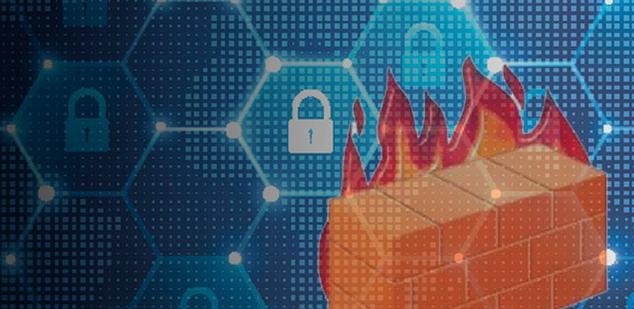Most computers and home networks have a lot of protection already, so do you really need a firewall anymore?
Is the day of the third-party firewall done? That’s the question many computer users are asking themselves as they try to navigate safely on the internet seas. The annoyingly vague answer to this is yes, and no.

Automatic protection
On the one hand, you get many of the things you used to get in a Firewall, readily installed on your home network.
The chances are that you already have a decent firewall in place if you run Windows. Microsoft has been running a built-in Firewall ever since the days of Windows XP. It’s job, like any firewall, is to monitor incoming internet traffic and block those files which it suspects of being malicious. You’ll see it at work every time you see a message saying it has blocked a program trying to access your computer. You’ll have the option of continuing to block the program or allowing it access if you trust it.
As well as this, your home network also benefits from protection in the form of your router. It polices incoming traffic and stops anything that looks or feels suspicious.
First thing’s first, in this day and age you definitely need a firewall in place. Without it your PC will almost certainly become infected. But the big question is: given all the protection you have from Windows and from your router, how valuable will a third-party firewall will be?
Firewalls – the new age
One thing’s for certain. A basic firewall will do little over and above the existing protection you already have. To remain competitive, third-party firewall providers have had to become innovative and offer a range of features you don’t already have.
Internet Security products from the likes of Norton will provide a higher spec firewall which includes further protection against network-based attacks. These are normally referred to as host intrusion Protection Systems (HIPS) or Intrusion Detection Systems (IDS). These protect against attacks designed to exploit vulnerabilities in popular programmes and eliminates them at the network level before they get as far as their target destination. If the file does get to your system, the antivirus software should then eliminate the malicious payload before it does any trouble.
Between this and the built-in protection from Windows, you should have most threats covered, but there may still be times when you need a firewall.
When you’re out and about, you’ll be beyond the protection of your home network. Instead you’ll be vulnerable to that unsecure café, train station or airport wireless network. Your computer will warn you about this – particularly if you try to access social media or online banking.
The network is unsecure which means anyone could be sat with a laptop attempting to access your information. If you send passwords or financial information online, this could all be intercepted. If you’re serious about security when you’re on the move, you’ll need a virtual private network which will keep all your browsing secure.
Firewalls are also evolving to keep pace with the modern world. Smart Firewalls offer a better way to protect multiple connected devices. Internet of Things (IoT) technology is making it possible to connect all sorts of objects that we use every day. Around the house your camera, thermostat, cooker, computers, smartphones and tablets could all be connected.
This is a developing sector and represents an attractive attack vector for hackers looking for reasonably easy targets. Both consumers and manufacturers of these devices lack awareness of their vulnerabilities and, while they get up to speed, cyber criminals will have spotted the opportunity.
Smart Firewalls
A smart firewall can provide greater security across all these connected devices, shoring up what otherwise might have been a point of vulnerability for your wider home network. They analyse all devices in real-time and notify you of any potential threats. This approach has been common for businesses but is only now really getting going for home consumers. It’s an evolving market and technology is developing rapidly.
For many people, an additional firewall will not be of much help. Where it will be useful is when you’re on the move or connecting multiple objects. As with any other product, do your research and find out what’s on offer by browsing reviews and recommendations. In a world in which technology is evolving rapidly, it also pays to make sure each one is up to the task and will allow you to update it as and when you need to.






